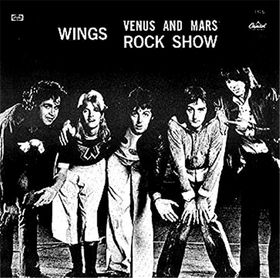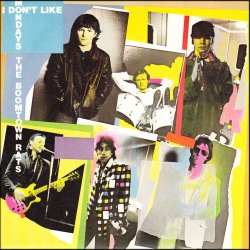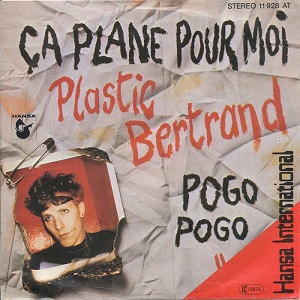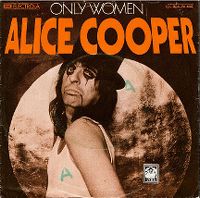THE 200
MOST
ESSENTIAL
SONGS
OF THE
1970s
It was the decade of glam,
disco, funk, Philly Soul, heavy metal, the singer/songwriter, punk and new
wave. Here are the 200 songs that mattered most during the Seventies, in
terms of influence, impact and success. To be eligible, the song needed to be
released- as a single or on an album- during the years 1970-1979.
|
|
190
 |
CAN'T STAND LOSING YOU
The Police [1978]
Sting stretches out as lyricist on the early Police song "Can't Stand Losing You". Using clever wit, he takes on the persona of a man at his lowest after a break up. He is so down that suicide appears his only option. Somehow, Sting pulls off a humourous and upbeat song while dealing with a sad predicament. The trio deliver a sound that brings together the energy of punk, reggae, rock and new wave. Re-released in 1979, the single peaked at #2 in Britain, becoming the group's biggest hit to date.
|
189
 |
AIN'T NO SUNSHINE
Bill Withers [1971]
Exploring the dark void left from losing someone you love, Bill Withers' "Ain't No Sunshine" takes the listener to the depths of pain and loss. His vocal is perfect for the subject matter and remains one of the most heartfelt performances in R&B. The song, penned by Withers himself, launched his solo career. It peaked at #3 on the US chart. Withers would continue employing his vocal skill to other 70s soul classics including "Lean On Me", "Who Is He (And What Is He To You)?" and "Lovely Day".
|
188
 |
VENUS AND MARS / ROCK SHOW
Paul McCartney & Wings [1975]
The Wings album 'Venus And Mars' opens with the title track and "Rock Show". The 2 form a medley that stands up against any of Paul McCartney's songs from his days as one of The Beatles. It is the contrast between the pair that remains a strength: "Venus And Mars" draws in the listener before "Rock Show" takes off. The medley grew into a rock anthem that evokes the era.
|
187
 |
I'M NOT IN LOVE
10cc [1975]
10cc delivered a true classic with the release of "I'm Not in Love". The majestic song set a new benchmark in production standards. Around 250 vocal dubs were used on the track. Tape loops created a new approach (using voices) to Phil Spector's Wall of Sound. The result was a unique sonic track, defying the limitations of technology at the time. Group members Eric Stewart and Graham Gouldman wrote the song. Lyrically, it cleverly explores a man's denial of how much the object of his affection means to him. His inability to express his true feelings are contradicted later by lines like: "big boys don't cry". The group's painstaking attention to detail was rewarded by the public worldwide. Along with reaching #1 in the UK, the single peaked in the Top 3 in America, Canada and Australia.
|
186
 |
I DON'T LIKE MONDAYS
Boomtown Rats [1979]
Bob Geldof drew inspiration from an actual school shooting perpetrated by a teenage girl for "I Don't Like Mondays". The song served as another example of a new wave act demonstrating songwriting and musical acumen. At a time when punk groups were often dismissed as untalented performers singing worthless songs, The Boomtown Rats dropped a thought-provoking and shocking image of reality. The shooter in the song displays no remorse and behaves in a manner not usually associated with 16 year old schoolgirls. Knowing the event was real added power to its chilling image. The single topped the British and Australian charts. In the mid-80s Geldof launched Band Aid and Live Aid to raise funds for victims of famine in Africa.
|
185
 |
LEVON
Elton John [1971]
Elton John broke through in 1970. By 1971, his 4th studio album was unleashed to a waiting public. Along with "Tiny Dancer", the track "Levon" are the stand-outs on the 'Madman Across The Water' LP. The pianist was developing an impressive songbook by the time the former was first aired over radio airwaves and played on turntables. "Levon" is a skilfully written song from Bernie Taupin's pen, with cryptic lyrics that ensure the song will continue being analyzed in the future. Running for over 5 minutes, it has an epic feel as the story of Levon and his son Jesus unfolds. Released as the singer/songwriter period blossomed, it is little wonder that John become a household name. The ballad has maintained its timeless quality.
|
184
 |
PUMP IT UP
Elvis Costello [1978]
'This Year's Model' was Elvis Costello's 2nd album."Pump It Up" shot out of radios with greater force than the musician's preceding hit singles "Watching The Detectives" and "(I Don't Want To Go To) Chelsea". Succinct lyrics powered by an insistent rock beat, the song mesmerizes. Packed with sexual energy, Costello is the epitome of punk rock while hinting that he possesses a versatility that was gradually revealed over subsequent decades. Refusing to be restricted by the new wave label, his catalogue already boasted the beautiful "Alison" on his debut album. Costello was no angry aimless punk; he is a career musician.
|
183
 |
ÇA PLANE POUR MOI
Plastic Bertrand [1977]
If "Ça Plane Pour Moi" jumped out at you during the 1970s, you will no doubt recall it. Plastic Bertrand's delivery stood out as a unique song that is often shrugged off as a novelty hit. While its lyrics made little, if any sense, it was a deft track that mixed an irresistible pop hook with traces of disco and a punk attitude. The Belgian recording's title translates as "This Life's For Me". It meshed styles in an innovative way that was ahead of its time.
|
182
 |
NEVER CAN SAY GOODBYE
Gloria Gaynor [1974]
The release of Gloria Gaynor's "Never Can Say Goodbye" is widely regarded as the point at which disco was an official music trend. It topped Billboard Magazine's inaugural Disco Chart. There had been other disco songs prior, most notably the #1s "Rock The Boat" and "Kung Fu Fighting", but Gaynor became the genre's first star. Disco had a regrettably lengthy list of one-hit wonders. Gaynor was crowned its queen early on, until she was succeeded by Donna Summer. The Jackson 5 had topped the US Pop chart with the original version of "Never Can Say Goodbye" in 1971. Gaynor's remake returned the Clifton Davis-penned song back into the Top 10. In the UK, it reached #2. Motown was again the source for a hit when the Queen of Disco covered The Four Tops 60s #1 "Reach Out I'll Be There" as the follow-up.
|
181
 |
ONLY WOMEN BLEED
Alice Cooper [1975]
Alice Cooper's "Only Women Bleed" has often been misunderstood, in part because of his on stage horror persona. Closer examination unwraps a song dealing with domestic abuse. The ballad was included on his 'Welcome To My Nightmare' album. At the time, Cooper was the master of "shock rock". His concerts had integral elements of theatre. In this way, Cooper was a trendsetter. It may have distracted listeners from the tender empathy contained in "Only Women Bleed". Sadly, the song's theme remains a pertinent issue to this day.
|
Sunday, February 28, 2016
THE 200 ESSENTIAL SONGS OF THE 1970s. Today: #190- 181. Continues next weekend.
Subscribe to:
Post Comments (Atom)
No comments:
Post a Comment